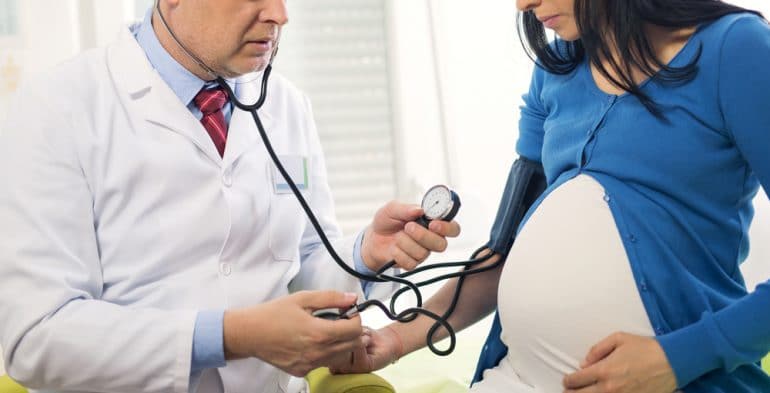
What is pre-eclampsia?
Unfortunately, pre-eclampsia is condition that is not fully understood, but may be caused by a defect in the placenta. This interferes with the flow of blood and nutrients to your baby, affecting their growth and your health.
Symptoms of pre-eclampsia
By monitoring you regularly, your midwife will be able to pick up signs of pre-eclampsia and you should trust your medical team to spot it during your regular check-ups.
However, if you experience any of the following symptoms, seek medical help immediately:
- Severe headaches
- Blurry vision, seeing spots or flashing lights before your eyes
- Pain in your upper abdomen
- Nausea and vomiting (although this could be just normal pregnancy sickness)
- Sudden swelling in your face, hands, ankles or feet
- Sudden excessive weight gain due and fluid retention
Who is most at risk?
Although the causes of pre-eclampsia are not fully understood, there are known factors that can put some women more at risk than others:
- Age– if you are a younger or older mother (over 40)
- Weight– if you are obese, with a body mass index of 35+
- Existing medical conditions– such as diabetes, high blood pressure, lupus and kidney disease
- Gap between pregnancies– usually if it has been 10+ years since your last child
- History of pre-eclampsia– if you or your mother or sister has had it before
- If you’re expecting a multiple birth– twins or more
- First pregnancy– if It’s your first pregnancy or your first pregnancy with a new partner
Prevention advice during pre-conception
Since one of the risk factors is obesity, some experts say that following a healthy, balanced diet – in turn reducing your BMI– can help reduce the risk of developing pre-eclampsia, and also control the severity of the disease.
It’s not about going on a ‘diet’ though; it’s about making some small changes that could make a big difference.
What if I have mild pre-eclampsia?
Mild pre-eclampsia does not always need treatment, and regular check-ups on you and your baby’s health may be all that’s needed.
What if I’m diagnosed with severe pre-eclampsia?
If you are diagnosed with severe pre-eclampsia, you will need lots of rest and you may need to spend time in hospital. Your body signs will be monitored, and you’ll have regular scans to keep an eye on your baby’s growth and development. In some cases you may need medication to manage your blood pressure and other factors.
If you are at risk, then you may have to be induced or have your baby delivered by caesarean section– but this is rare and only happens in the most serious cases.









